![Mother of boy healed through intercession of Fulton Sheen celebrates his upcoming beatification #Catholic Bonnie Engstrom, the mother of the child who was healed through Archbishop J. Fulton Sheen’s intercession, said she “laughed out loud with joy” when she heard his beatification was going to move forward.On Feb. 9, the Holy See officially informed Bishop Louis Tylka of the Diocese of Peoria, Illinois, that the cause for the Venerable Servant of God Archbishop Fulton J. Sheen can proceed to beatification. He is credited for the miracle that saved the life of Engstrom’s son James Fulton Engstrom, who was named after Sheen.“We had started getting to know Fulton Sheen and growing in our devotion to him while I was pregnant with James,” Engstrom said in a Feb. 13 interview with “EWTN News In Depth.” “During that pregnancy we had decided to name our son after him … to really put him under his patronage.”On Sept. 16, 2010, James was born at home. It had been a healthy pregnancy, and it was a healthy labor, but there was a knot in James’ umbilical cord that tightened during birth. “He was a stillborn, there was absolutely no sign of life,” Engstrom said.In the “time of crisis, I was in a state of shock,” she said. “I didn’t really know what to do, but I remember calling on Fulton Sheen, just saying his name, ‘Fulton Sheen, Fulton Sheen, Fulton Sheen.’”“While [James] was at home, while he was in the ambulance, and while he was at the hospital in the emergency room, he did not have a pulse for that entire time,” she said. “Right as the medical team was ready to call time of death, all hands were off. And at that moment, his heart started to beat again, and it never stopped after that.”James is a freshman in high school and doing “great,” Engstrom said. “He is doing really well. He loves music. He’s in an art class that he’s really enjoying … he’s a great kid. Hardworking, funny.”While James “has had some medical issues along the way,” there is nothing the family can attribute to his health issues at birth.Engstrom said that her son’s “initial MRI, the first 24 hours of his life, showed extensive brain damage, and the follow-up one was perfectly clear.”Sheen’s beatificationSheen’s cause for canonization was first opened in 2002 under the leadership of the Diocese of Peoria, Sheen’s birthplace, and from then on he was referred to as a servant of God. Pope Benedict XVI declared him venerable in June 2012.On March 6, 2014, the board of medical experts who advise the then-Congregation for the Causes of Saints unanimously approved the reported miracle of James. Pope Francis approved of the miracle of Sheen’s on July 5, 2019, and the beatification experienced numerous delays due to an ownership dispute of his remains and an investigation into clergy sex abuse in New York.While obstacles were eventually cleared, Engstrom said initially her family was “frustrated” and “disappointed” with the delays. “I think as things in the Church just continue to progress and time went by, we realized, we trust in Jesus and he’s got it in control. And so we were able to really lean into that and move past the initial disappointment,” she said.The family is “so excited,” Engstrom said. "We’re so happy about it.” “We really appreciate that in all of Church history, our family has a little footnote in it in a very special way, and it’s remarkable. It is such an honor, and it’s such a joyful thing,” she said. Mother of boy healed through intercession of Fulton Sheen celebrates his upcoming beatification #Catholic Bonnie Engstrom, the mother of the child who was healed through Archbishop J. Fulton Sheen’s intercession, said she “laughed out loud with joy” when she heard his beatification was going to move forward.On Feb. 9, the Holy See officially informed Bishop Louis Tylka of the Diocese of Peoria, Illinois, that the cause for the Venerable Servant of God Archbishop Fulton J. Sheen can proceed to beatification. He is credited for the miracle that saved the life of Engstrom’s son James Fulton Engstrom, who was named after Sheen.“We had started getting to know Fulton Sheen and growing in our devotion to him while I was pregnant with James,” Engstrom said in a Feb. 13 interview with “EWTN News In Depth.” “During that pregnancy we had decided to name our son after him … to really put him under his patronage.”On Sept. 16, 2010, James was born at home. It had been a healthy pregnancy, and it was a healthy labor, but there was a knot in James’ umbilical cord that tightened during birth. “He was a stillborn, there was absolutely no sign of life,” Engstrom said.In the “time of crisis, I was in a state of shock,” she said. “I didn’t really know what to do, but I remember calling on Fulton Sheen, just saying his name, ‘Fulton Sheen, Fulton Sheen, Fulton Sheen.’”“While [James] was at home, while he was in the ambulance, and while he was at the hospital in the emergency room, he did not have a pulse for that entire time,” she said. “Right as the medical team was ready to call time of death, all hands were off. And at that moment, his heart started to beat again, and it never stopped after that.”James is a freshman in high school and doing “great,” Engstrom said. “He is doing really well. He loves music. He’s in an art class that he’s really enjoying … he’s a great kid. Hardworking, funny.”While James “has had some medical issues along the way,” there is nothing the family can attribute to his health issues at birth.Engstrom said that her son’s “initial MRI, the first 24 hours of his life, showed extensive brain damage, and the follow-up one was perfectly clear.”Sheen’s beatificationSheen’s cause for canonization was first opened in 2002 under the leadership of the Diocese of Peoria, Sheen’s birthplace, and from then on he was referred to as a servant of God. Pope Benedict XVI declared him venerable in June 2012.On March 6, 2014, the board of medical experts who advise the then-Congregation for the Causes of Saints unanimously approved the reported miracle of James. Pope Francis approved of the miracle of Sheen’s on July 5, 2019, and the beatification experienced numerous delays due to an ownership dispute of his remains and an investigation into clergy sex abuse in New York.While obstacles were eventually cleared, Engstrom said initially her family was “frustrated” and “disappointed” with the delays. “I think as things in the Church just continue to progress and time went by, we realized, we trust in Jesus and he’s got it in control. And so we were able to really lean into that and move past the initial disappointment,” she said.The family is “so excited,” Engstrom said. "We’re so happy about it.” “We really appreciate that in all of Church history, our family has a little footnote in it in a very special way, and it’s remarkable. It is such an honor, and it’s such a joyful thing,” she said.](https://unitedyam.com/wp-content/uploads/2026/02/mother-of-boy-healed-through-intercession-of-fulton-sheen-celebrates-his-upcoming-beatification-catholic-bonnie-engstrom-the-mother-of-the-child-who-was-healed-through-archbishop-j-fulton-sheen.png)
Bonnie Engstrom, the mother of boy healed through the intercession of Fulton Sheen, provides an update on her son following the announcement of the archbishop’s upcoming beatification.
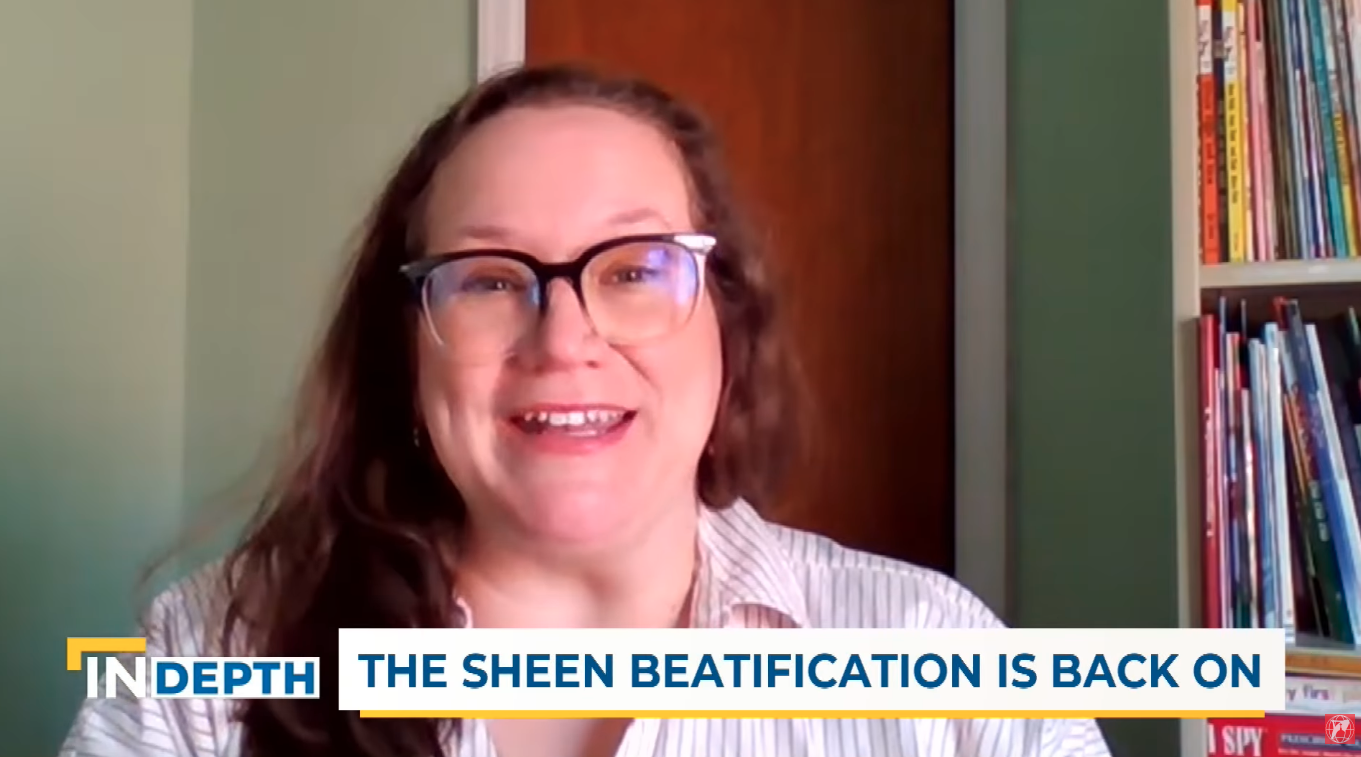
![Mother of boy healed through intercession of Fulton Sheen celebrates his upcoming beatification #Catholic Bonnie Engstrom, the mother of the child who was healed through Archbishop J. Fulton Sheen’s intercession, said she “laughed out loud with joy” when she heard his beatification was going to move forward.On Feb. 9, the Holy See officially informed Bishop Louis Tylka of the Diocese of Peoria, Illinois, that the cause for the Venerable Servant of God Archbishop Fulton J. Sheen can proceed to beatification. He is credited for the miracle that saved the life of Engstrom’s son James Fulton Engstrom, who was named after Sheen.“We had started getting to know Fulton Sheen and growing in our devotion to him while I was pregnant with James,” Engstrom said in a Feb. 13 interview with “EWTN News In Depth.” “During that pregnancy we had decided to name our son after him … to really put him under his patronage.”On Sept. 16, 2010, James was born at home. It had been a healthy pregnancy, and it was a healthy labor, but there was a knot in James’ umbilical cord that tightened during birth. “He was a stillborn, there was absolutely no sign of life,” Engstrom said.In the “time of crisis, I was in a state of shock,” she said. “I didn’t really know what to do, but I remember calling on Fulton Sheen, just saying his name, ‘Fulton Sheen, Fulton Sheen, Fulton Sheen.’”“While [James] was at home, while he was in the ambulance, and while he was at the hospital in the emergency room, he did not have a pulse for that entire time,” she said. “Right as the medical team was ready to call time of death, all hands were off. And at that moment, his heart started to beat again, and it never stopped after that.”James is a freshman in high school and doing “great,” Engstrom said. “He is doing really well. He loves music. He’s in an art class that he’s really enjoying … he’s a great kid. Hardworking, funny.”While James “has had some medical issues along the way,” there is nothing the family can attribute to his health issues at birth.Engstrom said that her son’s “initial MRI, the first 24 hours of his life, showed extensive brain damage, and the follow-up one was perfectly clear.”Sheen’s beatificationSheen’s cause for canonization was first opened in 2002 under the leadership of the Diocese of Peoria, Sheen’s birthplace, and from then on he was referred to as a servant of God. Pope Benedict XVI declared him venerable in June 2012.On March 6, 2014, the board of medical experts who advise the then-Congregation for the Causes of Saints unanimously approved the reported miracle of James. Pope Francis approved of the miracle of Sheen’s on July 5, 2019, and the beatification experienced numerous delays due to an ownership dispute of his remains and an investigation into clergy sex abuse in New York.While obstacles were eventually cleared, Engstrom said initially her family was “frustrated” and “disappointed” with the delays. “I think as things in the Church just continue to progress and time went by, we realized, we trust in Jesus and he’s got it in control. And so we were able to really lean into that and move past the initial disappointment,” she said.The family is “so excited,” Engstrom said. "We’re so happy about it.” “We really appreciate that in all of Church history, our family has a little footnote in it in a very special way, and it’s remarkable. It is such an honor, and it’s such a joyful thing,” she said. Mother of boy healed through intercession of Fulton Sheen celebrates his upcoming beatification #Catholic Bonnie Engstrom, the mother of the child who was healed through Archbishop J. Fulton Sheen’s intercession, said she “laughed out loud with joy” when she heard his beatification was going to move forward.On Feb. 9, the Holy See officially informed Bishop Louis Tylka of the Diocese of Peoria, Illinois, that the cause for the Venerable Servant of God Archbishop Fulton J. Sheen can proceed to beatification. He is credited for the miracle that saved the life of Engstrom’s son James Fulton Engstrom, who was named after Sheen.“We had started getting to know Fulton Sheen and growing in our devotion to him while I was pregnant with James,” Engstrom said in a Feb. 13 interview with “EWTN News In Depth.” “During that pregnancy we had decided to name our son after him … to really put him under his patronage.”On Sept. 16, 2010, James was born at home. It had been a healthy pregnancy, and it was a healthy labor, but there was a knot in James’ umbilical cord that tightened during birth. “He was a stillborn, there was absolutely no sign of life,” Engstrom said.In the “time of crisis, I was in a state of shock,” she said. “I didn’t really know what to do, but I remember calling on Fulton Sheen, just saying his name, ‘Fulton Sheen, Fulton Sheen, Fulton Sheen.’”“While [James] was at home, while he was in the ambulance, and while he was at the hospital in the emergency room, he did not have a pulse for that entire time,” she said. “Right as the medical team was ready to call time of death, all hands were off. And at that moment, his heart started to beat again, and it never stopped after that.”James is a freshman in high school and doing “great,” Engstrom said. “He is doing really well. He loves music. He’s in an art class that he’s really enjoying … he’s a great kid. Hardworking, funny.”While James “has had some medical issues along the way,” there is nothing the family can attribute to his health issues at birth.Engstrom said that her son’s “initial MRI, the first 24 hours of his life, showed extensive brain damage, and the follow-up one was perfectly clear.”Sheen’s beatificationSheen’s cause for canonization was first opened in 2002 under the leadership of the Diocese of Peoria, Sheen’s birthplace, and from then on he was referred to as a servant of God. Pope Benedict XVI declared him venerable in June 2012.On March 6, 2014, the board of medical experts who advise the then-Congregation for the Causes of Saints unanimously approved the reported miracle of James. Pope Francis approved of the miracle of Sheen’s on July 5, 2019, and the beatification experienced numerous delays due to an ownership dispute of his remains and an investigation into clergy sex abuse in New York.While obstacles were eventually cleared, Engstrom said initially her family was “frustrated” and “disappointed” with the delays. “I think as things in the Church just continue to progress and time went by, we realized, we trust in Jesus and he’s got it in control. And so we were able to really lean into that and move past the initial disappointment,” she said.The family is “so excited,” Engstrom said. "We’re so happy about it.” “We really appreciate that in all of Church history, our family has a little footnote in it in a very special way, and it’s remarkable. It is such an honor, and it’s such a joyful thing,” she said.](https://unitedyam.com/wp-content/uploads/2026/02/mother-of-boy-healed-through-intercession-of-fulton-sheen-celebrates-his-upcoming-beatification-catholic-bonnie-engstrom-the-mother-of-the-child-who-was-healed-through-archbishop-j-fulton-sheen.png)
Bonnie Engstrom, the mother of boy healed through the intercession of Fulton Sheen, provides an update on her son following the announcement of the archbishop’s upcoming beatification.

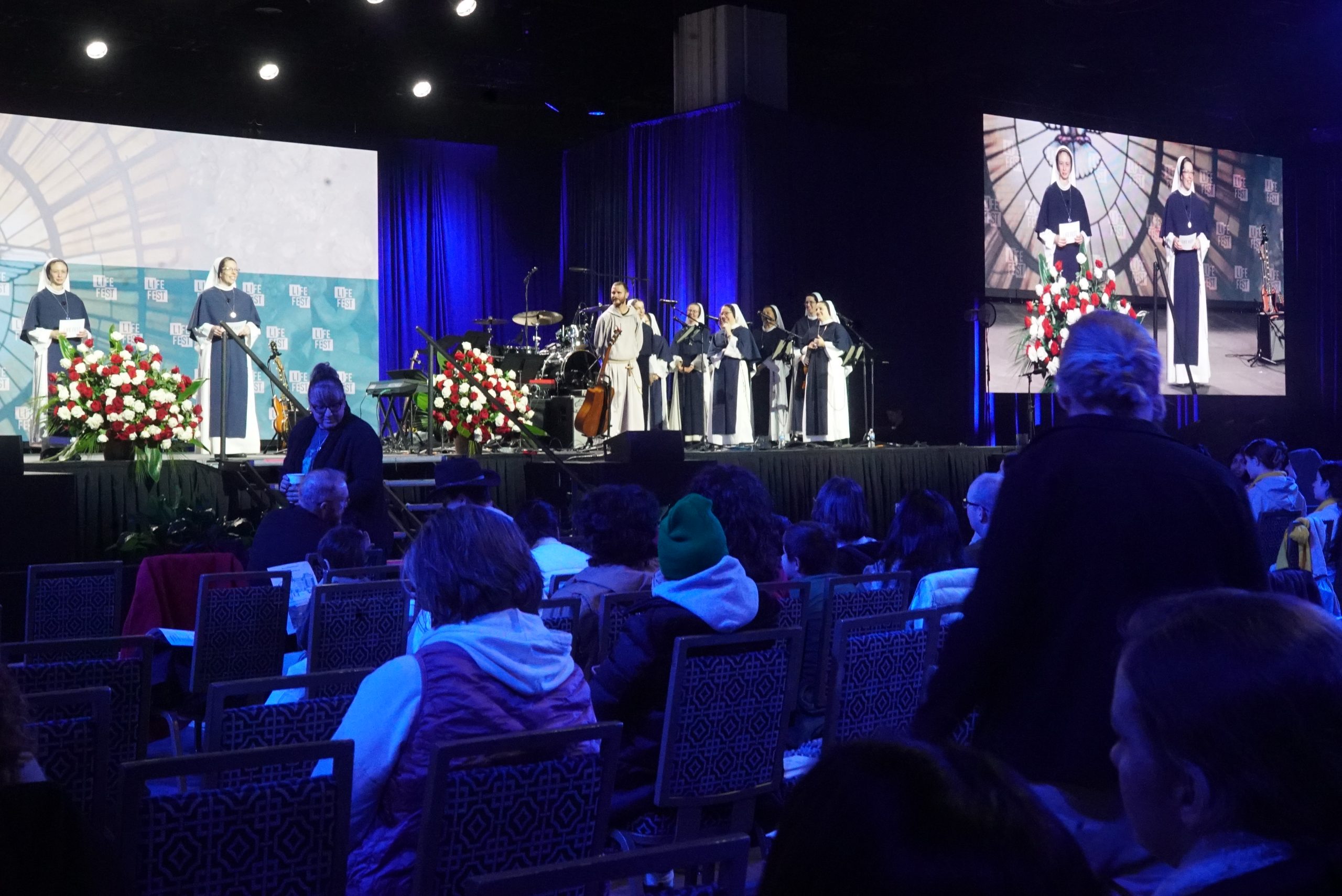

Jan 23, 2026 / 09:34 am (CNA).
Young Catholics who traveled from across the country for the March for Life started their day singing and praying with the Sisters of Life early Friday morning.
Life Fest 2026 participants gathered at the Gaylord National Resort and Convention Center in Oxon Hill, Maryland, to get energized, sing songs, and receive the sacraments before heading to the National Mall for the March for Life 2026.

The event, organized by the Sisters of Life and Knights of Columbus, began at 6 a.m. with music, pro-life testimonies, and chances to go to confession and venerate the relics of numerous saints. Several nuns played music as a part of the All the Living Band alongside Father Isaiah Marie Hofmann, CFR, while participants in the crowd sang along and clapped.
The crowd included everyone from young children to elderly people, Sisters of Life, Dominican brothers and priests, and the Knights of Columbus, who sponsored the event.
Students from Lansing Catholic High School in Lansing, Michigan, waited in a line to venerate relics of St. Carlos Acutis and St. John Paul II.
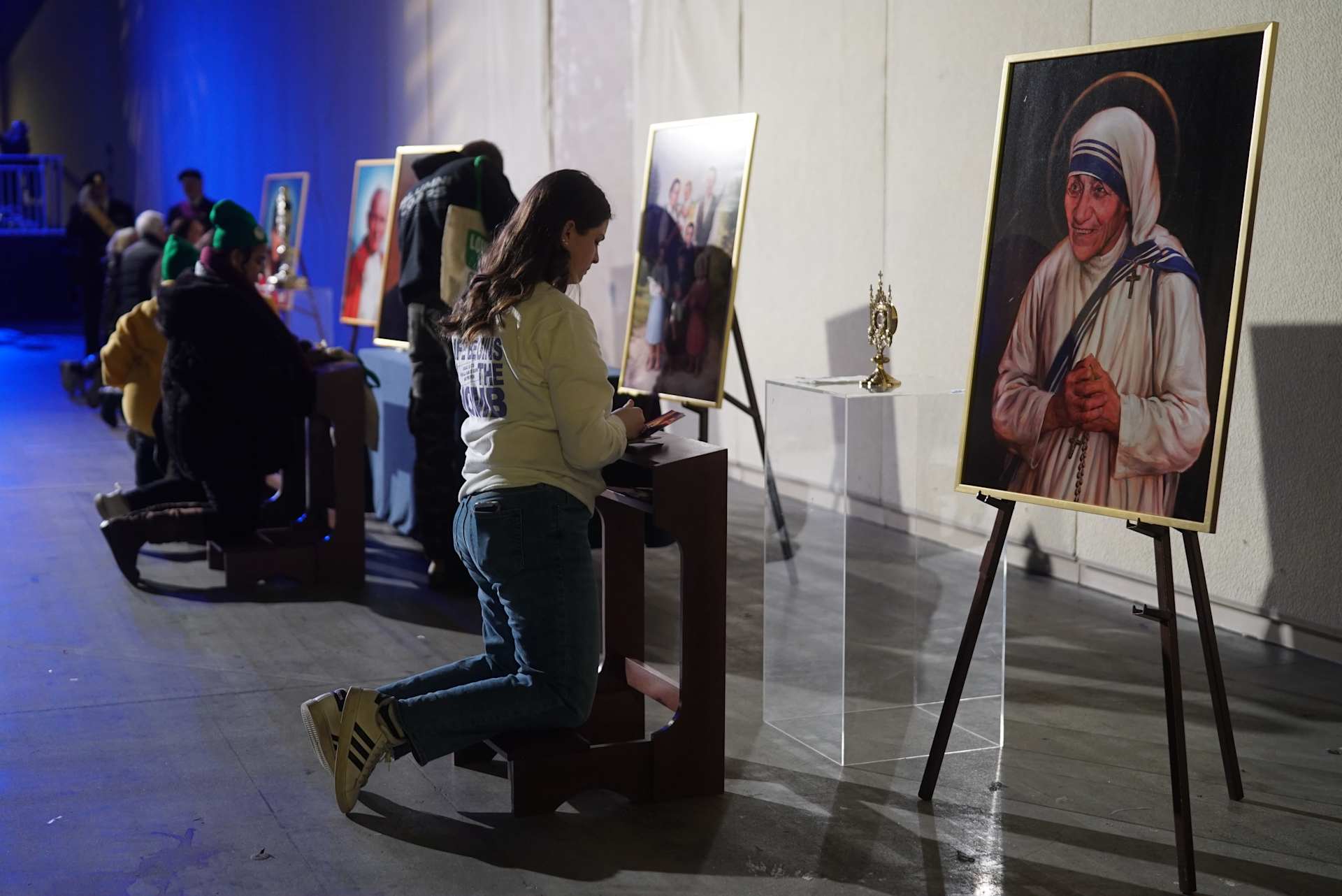
The event featured pro-life testimony from women and families who experienced crisis pregnancies and chose life, including the Schachle family, whose son Michael McGivny Schachle, who helped make his namesake a “blessed” through the miracle of his birth.
Schachle’s parents, Michelle and Daniel, gave their testimony while he stood alongside them on stage.
If you’re attending the March for Life, don’t forget to use #ewtnprolife on all your posts across X, TikTok, Instagram, and Facebook!
Want to relive interviews and special moments from the march? Visit ewtnnews.com/watch and subscribe to youtube.com/@EWTNNews for full coverage.
Read More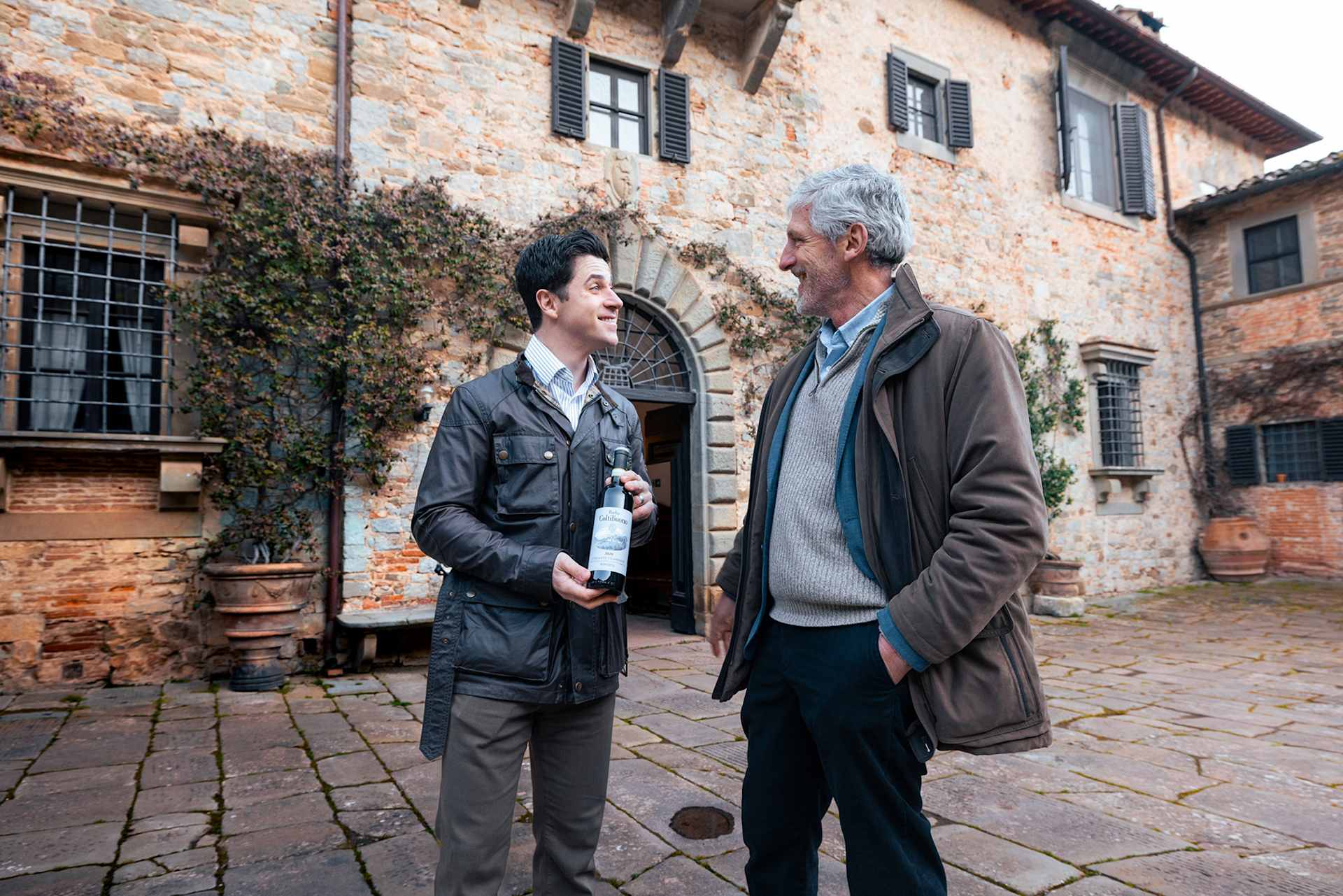

Jan 22, 2026 / 12:00 pm (CNA).
Catholic figures gathered in Los Angeles on Jan. 16 for the premiere of “Seeking Beauty,” the first original series from EWTN Studios airing exclusively on the network’s brand-new streaming platform, EWTN+.
Here are five things to know about the new series and its host, actor David Henrie.
“Seeking Beauty” is a first-of-its-kind adventure documentary series that explores culture, architecture, food, art, and music, and aims to point viewers to the beautiful — and ultimately to the divine.
The series follows Henrie’s journey into the heart of Italy to explore what makes Italian culture one of the most beautiful in the world. It not only looks at the physical beauty of the country but also its spiritual richness.
“Seeking Beauty” is available to watch exclusively on EWTN+, a free digital streaming platform that offers faith-based content. EWTN+ is available on RokuTV, GoogleTV, AppleTV, AmazonFireTV, and on EWTN.com.
The first season of “Seeking Beauty” takes place in several cities across Italy including Vatican City, Rome, Milan, Florence, and Venice.
Henrie is best known for his breakout role as Justin Russo on Disney Channel’s “Wizards of Waverly Place.” He grew up in a Catholic household with Italian heritage; however, Henrie’s early adult years were marked by what he has described as a relativistic and agnostic period. He has also spoken about how the successes of early fame left him feeling unfulfilled and searching for deeper meaning.
Henrie’s return to the Catholic faith was a profound personal transformation that he says began around age 21 or 22.
A significant influence came while working on the movie “Little Boy,” where conversations with Catholic cast members Kevin James and Eduardo Verástegui, as well as a visit to St. Michael Abbey in Orange County, California — including his first confession since childhood — played a pivotal role in rediscovering his faith.
Since then, Henrie has embraced his faith publicly and personally, integrating his beliefs into his family life, creative projects, and charity work, including serving as a brand ambassador for Cross Catholic Outreach and participating in mission trips that reflect his commitment to living out his faith. He is married and has three children.
Yes! The second season of the series was filmed in Spain and is scheduled to premiere this fall.
Read More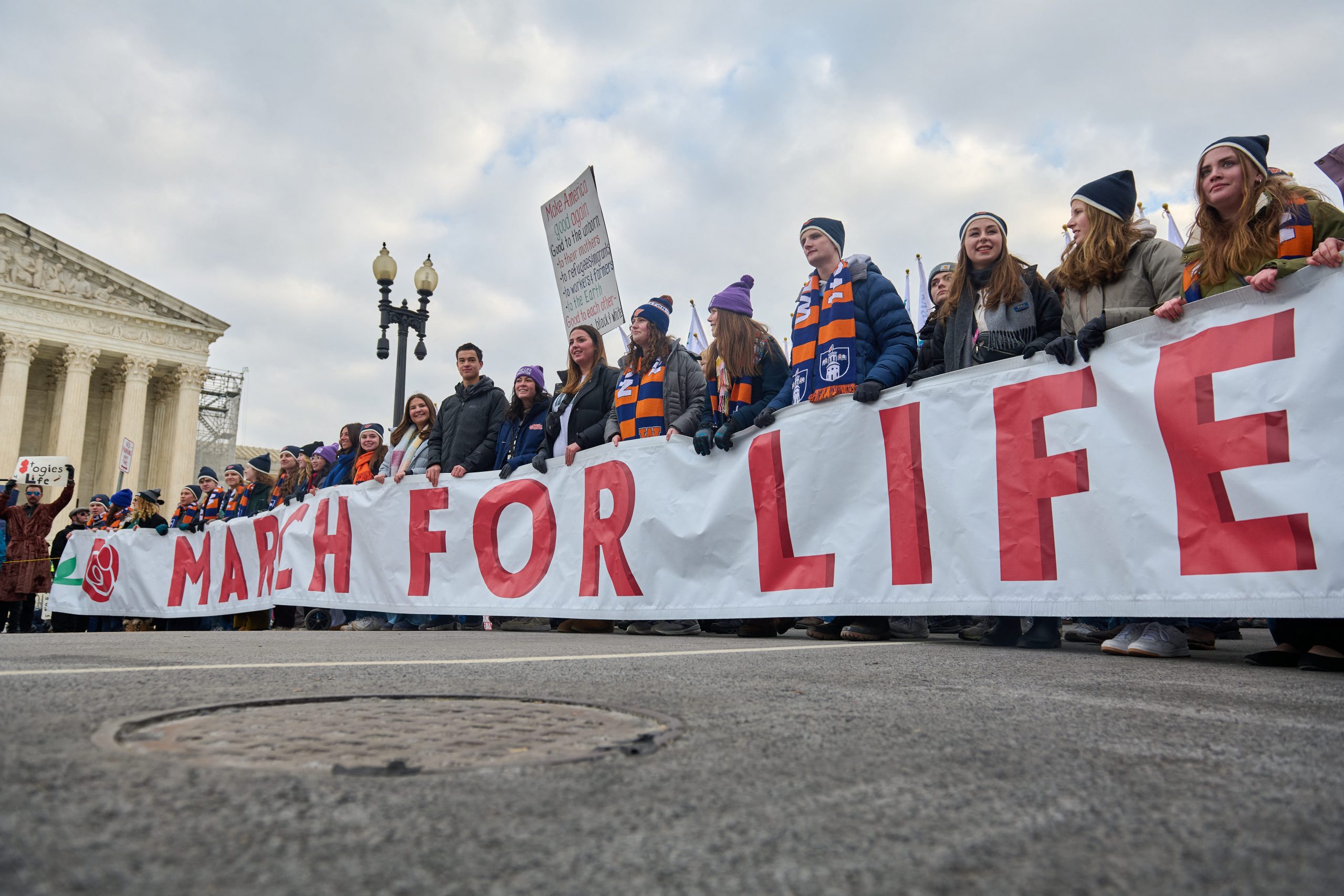

Jan 21, 2026 / 06:00 am (CNA).
With tens of thousands of pro-life Americans gathering for the 53rd annual March for Life in Washington, D.C., on Friday, Jan. 23, EWTN will provide live coverage of the event.
The yearly national pro-life event marks the anniversary of Roe v. Wade, drawing together thousands to protest abortion and advocate for life. This year’s theme is “Life Is a Gift,” which the March for Life official website says emphasizes the “unshakeable conviction that life is very good and worthy of protection, no matter the circumstances.”
5 p.m. ET: EWTN’s National March for Life coverage kicks off before the march with a night of prayer at the Basilica of the National Shrine of the Immaculate Conception. The National Prayer Vigil for Life is held annually on the eve of the March for Life, bringing thousands of pilgrims across the nation together to pray for an end to abortion.
At 5 p.m. ET, EWTN will stream the opening Mass followed by the Holy Hour of the National Prayer Vigil for Life at 7 p.m. as pro-lifers pray and prepare for the upcoming march.
8 a.m. ET: The all-night prayer vigil will conclude with the closing Mass of the National Prayer Vigil for Life at the shrine, televised live by EWTN.
9:30 p.m. to 4:30 p.m. ET: EWTN will air coverage of the March for Life, featuring a keynote by Sarah Hurm, a single mom of four who went through a chemical abortion reversal to save the life of her child.
Other speakers include Speaker of the House Mike Johnson, R-Louisiana; Rep. Chris Smith, R-New Jersey; and March for Life President Jennie Bradley Lichter. The march will also feature pro-life entrepreneurs including Shawnte Mallory, founder of Labir Love And Care, and Debbie Biskey, CEO of Options for Her, as well as student activist Elizabeth Pillsbury Oliver, a convert to Catholicism who heads Georgetown University’s Right to Life group.
Rev. Irinej Dobrijevic, a Serbian Orthodox bishop of the Diocese of Eastern America, and Cissie Graham Lynch, spokesperson for the Billy Graham Evangelistic Association, will also speak at the event.
In addition, the Christian band Sanctus Real will perform at the rally and the Friends of Club 21 choir — a chorus of young adults with Down syndrome — will perform the national anthem.
4 p.m. ET: EWTN will broadcast the second annual Life Fest Mass, sponsored by the Sisters of Life and the Knights of Columbus as part of the Life Fest Rally. The Life Fest Rally begins the evening before the march with live music from Matt Maher and other Christian bands.
2:30 p.m. ET: The 21st annual Walk for Life West Coast will begin with a rally followed by the walk. EWTN will livestream coverage of the walk.
5 p.m. ET: EWTN will televise highlights from One Life (Una Vida), a one-day event centered on witnessing human dignity with a focus on the pro-life issues as well as other issues such as human trafficking and homelessness. The coverage will be hosted by Astrid Bennett and Patricia Sandoval, along with EWTN producers, during the march.
8 p.m. ET: EWTN will televise a pro-life Mass from Los Angeles, concluding the weekend’s pro-life coverage.
Read More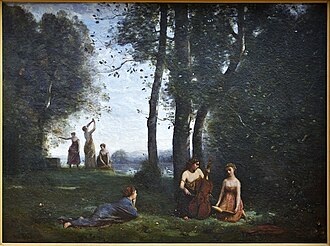
| Picture of the day |
|---|

|
|
Le concert champêtre (English: Woodland Music-makers), a 1857 oil-on-canvas by the French painter Jean-Baptiste-Camille Corot
|